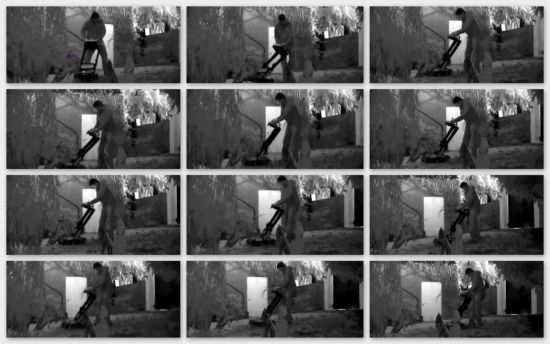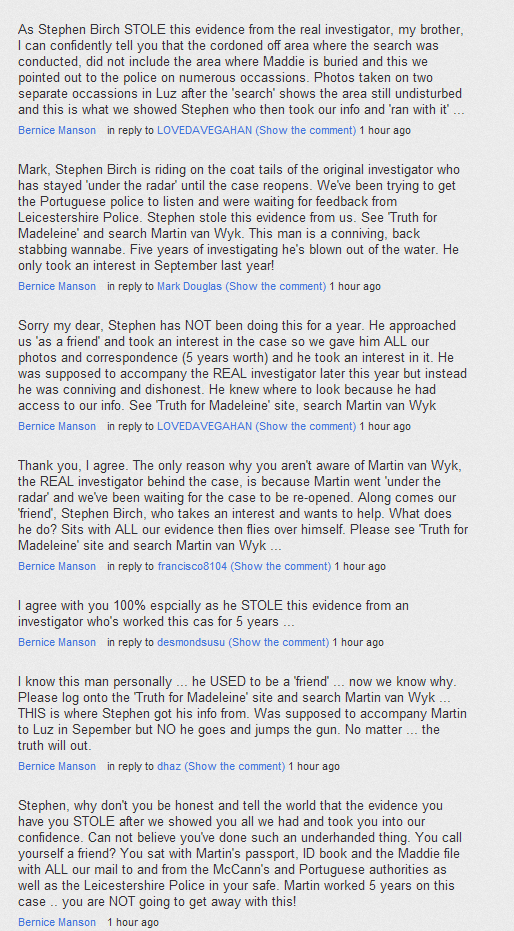|
Robert Murat may sue the South African businessman
Stephen Birch for trespassing on private property after
the latter publicly assumed that he had entered in the
garden of Murat's house in Praia da Luz, near Lagos,
whenever Robert went out, in order to inspect the
terrain with a georadar through which Birch claims to
have located the place where the cadaver of Madeleine
McCann, who disappeared in May 2007, is hidden.
“We are looking at what was said, analysing the
statements that were made and then I will have a meeting
with my client so we can make a decision. Suing is a
situation to consider, it remains an open hypothesis”,
said Francisco Pagarete, Robert Murat's lawyer to DN.
The Anglo-Portuguese citizen, and former real estate
agent ended up being constituted as arguido with
Declaration of Identity and Residence [Termo de
Identidade e Residencia]1, just like Maddie's parents
were, on suspicion of involvement in the disappearance
of the British child, following the investigations of
the Judiciary Police, which included at the time
excavations in parts of Murat's garden, where nothing
was found.
Meanwhile, other lawyers guaranteed to DN that if the
lawsuit now being considered does take place, “at most,
in the worst case scenario” the South African “could be
punished with the obligation of having to pay a fine of
four hundred euro for the invasion of a private
property”.
“This is a complicated process, in which the individual,
who now states that he has entered the garden to try to
find out where the supposed body of Maddie is, could,
later on, deny that version. And to be able to punish
that man, Murat would have to prove what he did. On the
other hand, while living in South Africa he would only
have to come to Portugal to present himself in a court2
if he wished to do so”, argued one of the lawyers heard
by DN, adding that there are several examples similar to
this case.
Diario de Noticias, July 7, 2012, paper edition
Legal Reference
1. Termo de Identidade e Residencia (TIR) - The arguido
(formal suspect) is subject to a regular presence before
the authorities to confirm with the relevant documents
their identity as well as their present residence at
that time.
2. The Portuguese Republic and the Republic of South
Africa do not have a bilateral extradition agreement,
though an agreement of mutual police cooperation exists
since 2002. |



